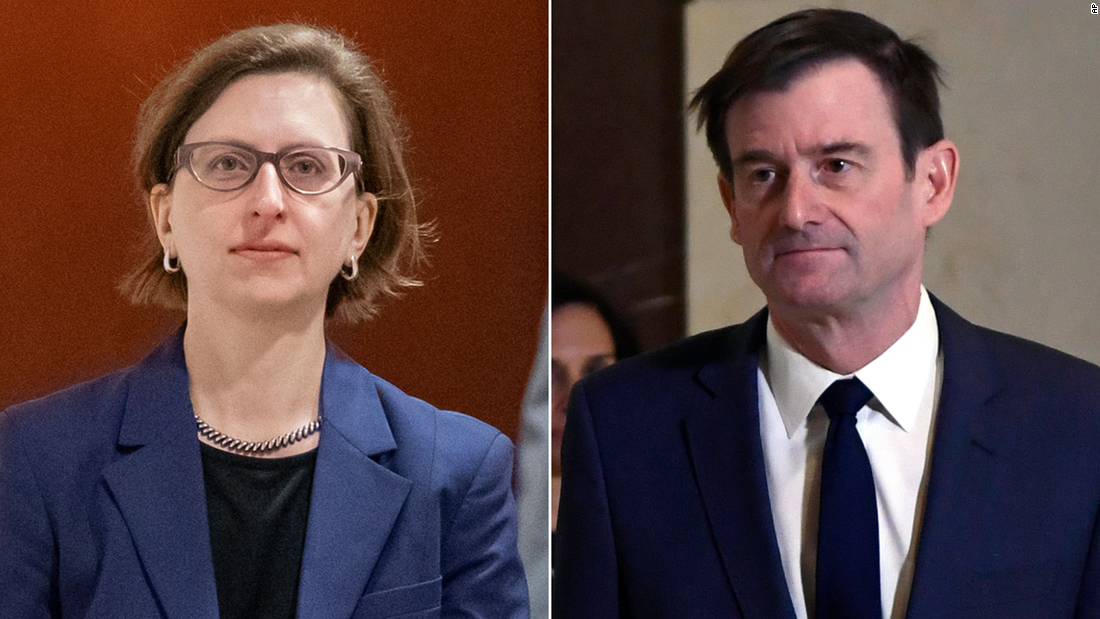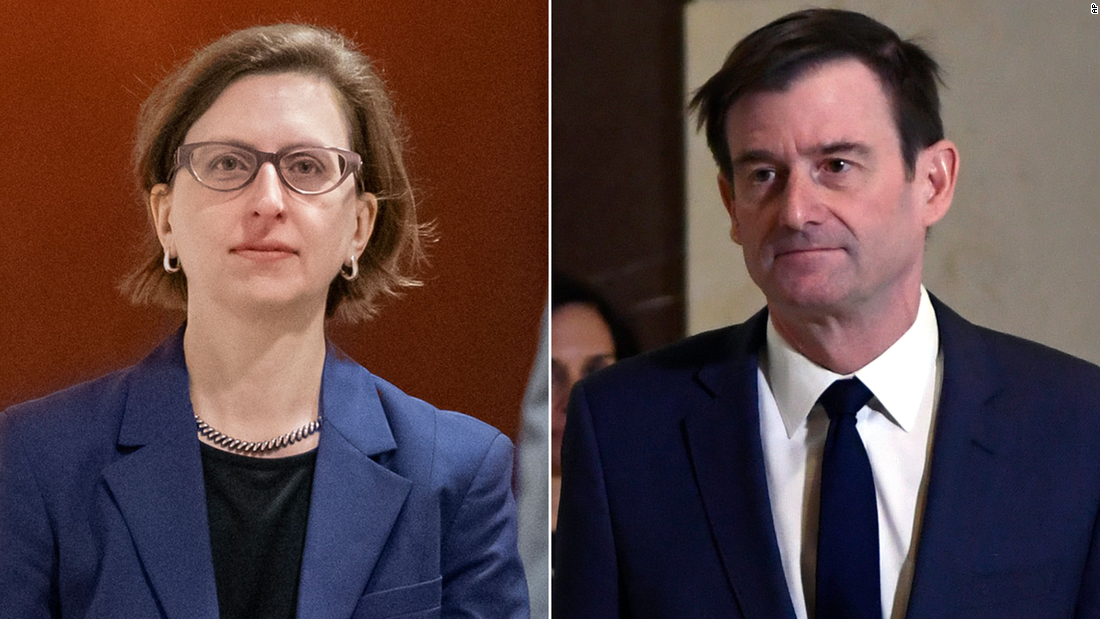[ad_1]

In their defense of President Donald Trump, Republicans have alleged no bribery could exist if the Ukrainians weren’t aware the aid was being held.
But Laura Cooper, the deputy assistant secretary of defense for Russia, Ukraine and Eurasia, testified as part of the House impeachment inquiry that some members of her staff recalled receiving queries about the aid from Ukrainian officials on July 25 — the same day as Trump’s much-scrutinized phone call with the Ukrainian President.
“What is going on with Ukrainian security assistance?” one Ukrainian contact emailed a member of her staff, Cooper recalled.
Cooper couldn’t say for certain whether the Ukrainian check-ins came because they were aware a hold was in place on the aid. But when asked if it could have just been a regular inquiry about the assistance package, Cooper responded: “It’s my experience with the Ukrainians they would call about specific things, not just generally checking in on the assistance package.”
It was a new piece of information in the impeachment proceedings, which are exploring whether Trump conditioned the US aid — which included military and financial assistance — on Ukraine announcing investigations into a political rival.
Trump, White House officials and Republican members of Congress have insisted there could be no wrongdoing if the Ukrainians weren’t aware the aid was being held up. They have argued Kiev wasn’t aware of the delay until it was publicly reported in late August.
But Cooper’s testimony dramatically altered the timeline, bringing the time of realization a month earlier to the very day Trump asked President Volodymyr Zelensky for a “favor” in opening investigations into Hunter Biden and the energy company Burisma.
Based on Cooper’s accounting, the emails describing Ukrainian questions about the aid came in the mid-afternoon — hours after Trump’s 9 a.m. phone call with Zelensky.
Trump’s allies continued to insist Wednesday that Zelensky himself has denied knowing anything about the hold until it was revealed in public reports.
Still, the revelation that at least some Ukrainian officials were aware of an issue makes clear the delay was known in some circles well before the end of August.
Like other witnesses, Cooper described her concern at the freeze in assistance, both because it had already been approved by Congress and because Ukraine depended on it to defend itself against Russian aggression.
“The United States and our allies provide Ukraine with security assistance because it is in our national security interest,” she testified. “We also provide security assistance so that Ukraine can negotiate a peace with Russia from a position of strength.”
Cooper’s new details injected news into the hearing, though it still proceeded relatively quickly compared to previous hearings. Staff attorneys did not question the witnesses, who delved into some of the particulars at how American foreign aid is distributed.
In her opening statement, Cooper described her understanding of why the hundreds of millions of dollars was being held up.
“I heard that the President had directed the Office of Management and Budget to hold the funds because of his concerns about corruption in Ukraine,” she said.
Cooper helped orchestrate US strategy for bolstering Ukraine’s military, a bulwark against Russia. She played a coordinating role in managing the financial and military assistance Congress approved — and participated in meetings when the aid was held.
On Wednesday, he called Yovanovitch an “exceptional officer, doing exceptional work.”
“She should have been able to stay at post,” Hale said.
A number of State Department officials have testified so far in the public hearings, but Hale is the most senior. A career foreign service officer, he told lawmakers during his earlier deposition that the judgment from senior State Department officials was that a statement supporting Yovanovitch would only worsen the situation.
“It would be better for everyone, including the ambassador, to try to just move past this,” he said.
This story has been updated with additional developments Wednesday.
[ad_2]
Source link

